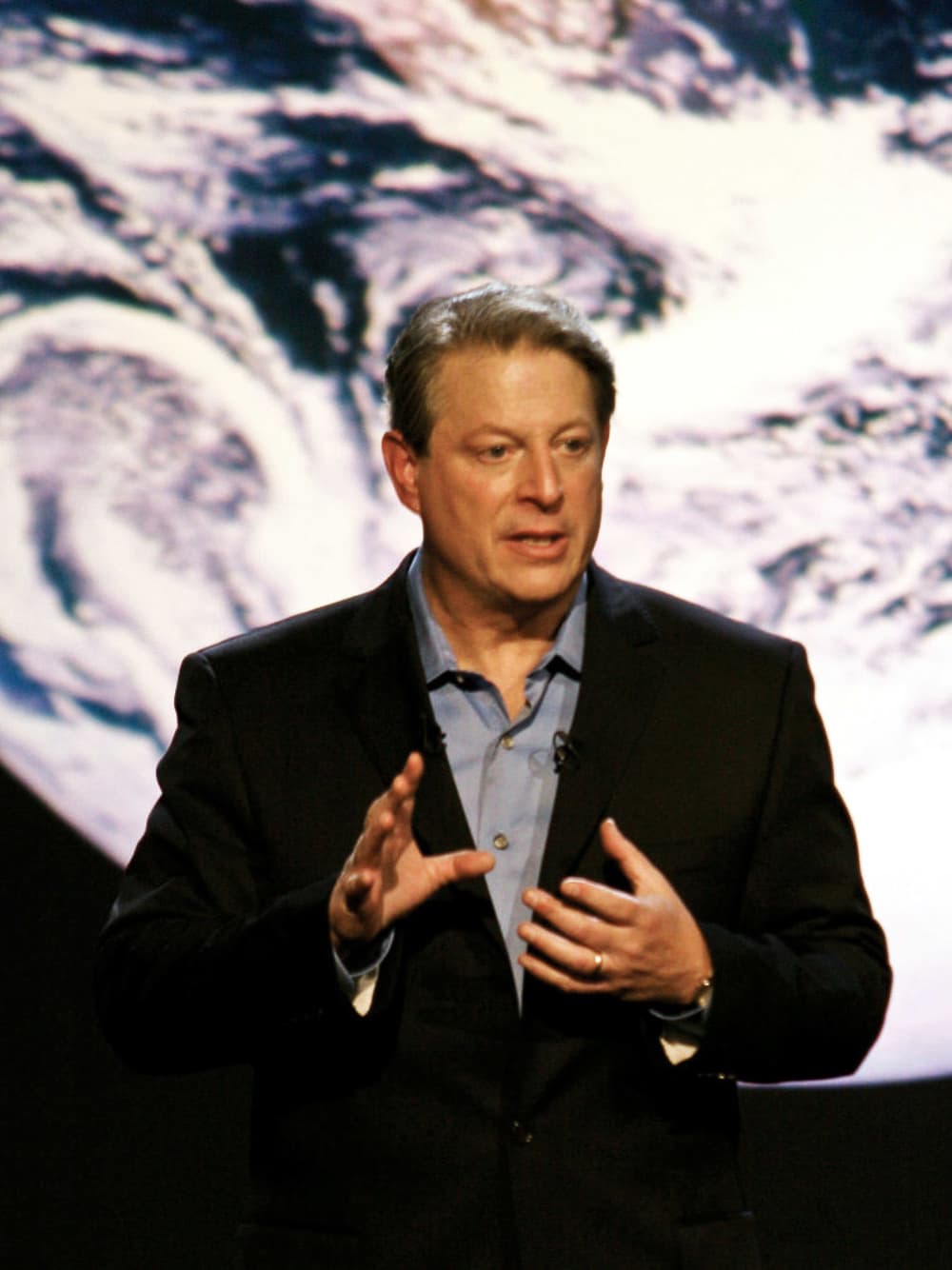An Earth Day Counterpoint
The global warming hoax? Houston expert talks climate alarmist pollution
 Wind power still provides very little power.
Wind power still provides very little power. Has the danger to this cute, little polar fellow been greatly exaggerated?
Has the danger to this cute, little polar fellow been greatly exaggerated? Al Gore fits the expert's definition of a climate alarmist.Photo by Eric Lee
Al Gore fits the expert's definition of a climate alarmist.Photo by Eric Lee
I consider myself an environmentalist, but having extensively studied the issues I haven’t found any evidence that the sky is falling, oceans are rising, polar bears are sweating or that carbon dioxide is a polluting menace.
There is clear evidence, however, that such claims are predicated upon climate models that can’t even predict last week’s weather, that Norse Viking farmers grew crops in a much warmer Greenland about 1,000 years ago, that global temperatures have risen and fallen dramatically over hundreds of thousands of years without human influence, and that atmospheric carbon dioxide levels typically followed, not led those changes.
By the way, maybe you noticed that global temperatures have actually been dropping over the past decade in spite of increased CO2?
Happy Earth Day to you, too.
Some may argue that unfounded alarmism is justifiable, even necessary, to get our attention and motivate us to do what we should be doing anyway to conserve energy and not pollute the planet. Hey, who wants to challenge those purposes?
And motives? What about portraying polar bears as endangered victims to block drilling in Alaska, and classifying carbon dioxide as an endangering pollutant to open up lucrative cap-and-trade markets? What if these tactics lack any scientific basis and some of us who reject those particular agendas challenge them?
Global Warming doubters grow
Until recently, those who expressed skepticism risked scornful branding as heretics by members of a powerful global warming orthodoxy. But now the doubter population, no longer a minority, continues to rapidly expand. What was once considered heresy is presently becoming a skeptical norm. This will most certainly continue as the public continues to be better informed about facts vs. fictions.
Now let’s take this argument a step farther. What if after scaring us with nonsense and twanging our eco-guilt strings we are told that we really don’t need to do that evil drilling or burn dangerous fossil fuel anyway. We can use “renewable” sources of energy that are clean, unlimited, sustainable and energize our way to independence of foreign oil.
How can any true environmentalist argue with that? More important, how can any informed authority believe it?
Consider a few easily verifiable facts:
- Bio fuels (ethanol for example) require as much or more fossil energy (petroleum) to grow the crops and process as they produce, while competing for farmland needed to grow food crops for people and livestock. Cellulosic ethanol from plant wastes sounds good, but hasn’t proven to be commercially viable.
- Wind power (now about 0.5 percent of US electricity compared with 50 percent for coal) has very little growth capacity, is unreliable, remote from areas of high demand, and depends upon a “spinning reserve” of natural gas when winds are too weak or strong (most of the time).
- Solar power (currently about 1/100 of one percent of United States electricity) is inefficient, expensive, and not surprisingly, unavailable at night. Few serious people are excited about capacities.
- Hydropower (about six percent of U.S. electricity) has virtually no place to grow because dam sites are being used and “environmentalist” groups want to remove some that exist due to fish kills and other ecosystem damage. Wave and tidal power are inefficient and limited to ideal offshore locations as local sources.
- Geothermal sites are very geographically limited and restricted because they contaminate water and land with heavy metals and other toxic materials.
- The term “hydrogen economy” is an oxymoron. Hydrogen requires more energy to produce than it yields, is difficult to contain, and is dangerously explosive. The main source is natural gas.
- Nuclear power (about 20 percent of all US electricity produced by 104 plants) releases no CO2, but many environmental groups hate it anyway, as they do all others mentioned.
So what can really be said about green energy? Most of the sources appear to be decidedly browner than advertised. Yes. We need to conserve and apply all options possible. But let’s also tone down the climate hysteria and eco-sanctimony.
Larry Bell is a professor of architecture and endowed professor of space architecture at the University of Houston. His new book “Climate of Corruption: Politics and Power Behind the Global Warming Hoax” will be released in January 2011.

 Grand Lux Cafe is known for its baked-to-order desserts. Grand Lux Cafe/Facebook
Grand Lux Cafe is known for its baked-to-order desserts. Grand Lux Cafe/Facebook